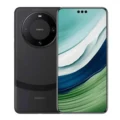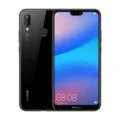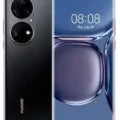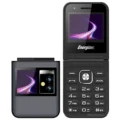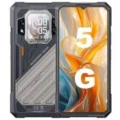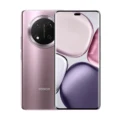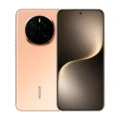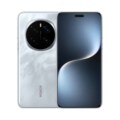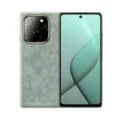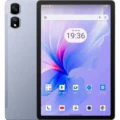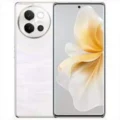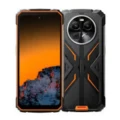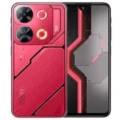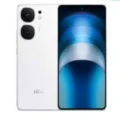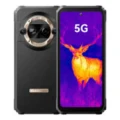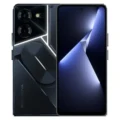Huawei MatePad Pro 13.2







- : 256GB/512GB/1TB storage,12/16GB RAM Kirin 9000
- : 13.2" 2880x1920 pixels
- : 10100mAh Li-Po
- : 13MP 2160p
Unleashing Creativity and Productivity: Huawei MatePad Pro 13.2
In the ever-evolving landscape of tablets, the Huawei MatePad Pro 13.2 stands out as a beacon of innovation, blending cutting-edge technology with sleek design to redefine the boundaries of productivity and creativity.
Design Elegance and Immersive Display
The MatePad Pro 13.2 boasts a design that seamlessly combines elegance with functionality. Its slim profile and premium build materials make it a statement of sophistication, fitting seamlessly into professional and creative environments alike. The tablet’s immersive 13.2-inch display captivates users with vibrant colors and sharp details, providing an unparalleled canvas for work and entertainment.
Unrivaled Performance for Enhanced Productivity
Underneath its elegant exterior, the MatePad Pro 13.2 houses a powerhouse of performance. The Kirin chipset ensures smooth multitasking, allowing users to effortlessly switch between demanding applications and creative projects. With ample RAM and storage options, this tablet is engineered to meet the needs of professionals and enthusiasts alike, offering a fluid and responsive user experience.
M-Pencil and Smart Magnetic Keyboard: Tools of Creativity
Huawei understands the importance of accessories in enhancing productivity. The MatePad Pro 13.2 is complemented by the M-Pencil, a stylus that delivers precision and responsiveness for creative endeavors. Additionally, the Smart Magnetic Keyboard transforms the tablet into a versatile workstation, providing a tactile typing experience for users who prefer a traditional keyboard setup.
HarmonyOS: Seamless Integration Across Devices
The MatePad Pro 13.2 operates on Huawei’s HarmonyOS, a cutting-edge operating system designed for a seamless and intuitive user experience. This ensures that users can effortlessly switch between their MatePad Pro and other HarmonyOS-enabled devices, creating a cohesive ecosystem that enhances productivity and connectivity.
Exceptional Camera System for Content Creation
Equipped with a high-quality camera system, the MatePad Pro 13.2 is not just a productivity tool but also a content creation powerhouse. The tablet’s camera delivers stunning visuals for video conferencing, content creation, or capturing memorable moments, adding versatility to its array of capabilities.
Long-lasting Battery Life and Fast Charging
To keep up with the demands of a busy lifestyle, the MatePad Pro 13.2 features a long-lasting battery that ensures uninterrupted productivity. With Huawei’s fast-charging technology, a quick charge provides a significant boost, minimizing downtime and keeping users connected throughout the day.
In conclusion, the Huawei MatePad Pro 13.2 is not just a tablet; it’s a comprehensive tool designed to elevate both creativity and productivity. With its elegant design, powerful performance, and an ecosystem of accessories, this tablet is a testament to Huawei’s commitment to delivering innovative solutions for the modern user. Whether you are a professional or a creative enthusiast, the MatePad Pro 13.2 is poised to redefine your digital experience.
Want to Learn More?
Furthermore Visit the official website of Huaweifor detailed information about the Huawei MatePad Pro 13.2: Huawei Official Website
Still Unsure?
If you’re still unsure about your choice, explore other options from Huawei at your nearest store: Huawei Store
Specs
Network
| 2G Network GSM 850 / 900 / 1800 / 1900 - SIM 1 & SIM 2 (dual-SIM) CDMA 800 / 1900 | N/A |
| 3G Network | N/A |
| 4G Network | N/A |
LAUNCH
| Announced | September, 2026 |
| Status | Available. Released 2023, September 26 |
BODY
| Dimensions | 289.1 x 196.1 x 5.5 mm (11.38 x 7.72 x 0.22 in) |
| Weight | 580 g (1.28 lb) |
| SIMs SIM (Subscriber Identity Module) is a small card that contains mobile network subscriber's account information. This allows the phone using the card to attach to a mobile network. The SIM card is most commonly associated with GSM and UMTS mobile networks. Moving a SIM card from one phone to another allows a subscriber to switch mobile phones without having to contact their mobile network carrier. SIM cards can also be used by a phone to store limited amounts of data, such as phone numbers and text messages. |
No Stylus support |
Display
| Display Type Display Technology => A number of display technologies and types used in mobile phones => TFT (Thin Film Transistor), IPS (In-Place Switching), OLED (Organic Light Emitting Diode), AMOLED (Active-Matrix Organic Light-Emitting Diode), Super AMOLED (an even advanced version of AMOLED), Resistive Touchscreen (Resistive touchscreens contain two layer of conductive material with a very small gap between them which acts as a resistance), Capacitive Touchsceen (Capacitive touchscreen technology consists of a layer of glass coated with a transparent conductor) | OLED, 1B colors, 144Hz, 1000 nits (peak) |
| Size | 13.2 inches, 518.8 cm2 (~91.5% screen-to-body ratio) |
| Resolution | 2880 x 1920 pixels, 3:2 ratio (~262 ppi density) |
PLATFORM
| Operating System OS => Every computer system run on a base software called Operating System (OS). Operating System controls all basic operations of the computer (such as smartphone, PDAs, tablet computers and other handheld devices). The Operating System allows the user to install and run third party applications (apps), apps are used to add new functionality to the device. | Harmony OS 4.0 |
| Chipset Chipset is a group of integrated circuits designed to perform one or a more dedicated functions, often with real time computing constraints, Popular smartphones are equipped with more advanced embedded chipsets that can do many different tasks depending on their programming. | Kirin 9000S (7 nm) |
| CPU CPU (Central Processing Unit) mostly known as processors, CPU processes instructions in order to carry out certain functions that make your device operate properly. Processors are often described as the brain of computers, smartphones and tablets, Smartphones and tablets rely on processors to carry out their every task, Processors are an incredibly important factor in selecting any type of computing device, including your smartphone. | Octa-core (1x2.62 GHz Taishan Big & 3x2.15 GHz Taishan Mid & 4x1.53GHz Cortex-A510) |
| GPU GPU (Graphics Processing Unit) is a single-chip processor designed to rapidly manipulate and alter memory to accelerate the creation of images in a frame buffer intended for output to a display, This includes things such as lighting effects, object transformations, and 3D motion. | Maleoon 910 MP4 |
MEMORY
| Card Slot Memory Card Slot is a special slot for inserting a memory card. Memory cards allow you to expand the phone's built-in memory, A memory card (sometimes called a flash memory card or a storage card) is a small storage medium used to store data such as text, pictures, audio, and video, for use on small, portable or remote computing devices such as mobile phones, mp3 players, digital cameras. | No |
| Internal | 256GB 12GB RAM, 512GB 12GB RAM, 1TB 16GB RAM UFS 3.1 |
MAIN CAMERA
| Cameras Specs Today’s smartphones come equipped with a very comprehensive set of camera related specifications. Our smartphone, for many of us, has become our primary camera due to it being the one we always have with us. |
13 MP, f/1.8, (wide), PDAF 8 MP, f/2.2, (ultrawide) |
| Video | 4K@30fps, 1080p@30fps |
| Camera Features | LED flash |
SELFIE CAMERA
| Cameras Specs Today’s smartphones come equipped with a very comprehensive set of camera related specifications. Our smartphone, for many of us, has become our primary camera due to it being the one we always have with us. | 16 MP, f/2.2 |
| Features | TOF 3D, (depth/biometrics sensor) |
| Video | 1080p@30fps |
SOUND
| Loudspeaker | Yes, with stereo speakers (6 speakers) |
| 3.5mm jack | No |
COMMS
| WLAN | Wi-Fi 802.11 a/b/g/n/ac/6, dual-band |
| Positioning | GPS, GLONASS, BDS |
| Bluetooth Bluetooth is a wireless communications technology for exchanging data between mobile phones, headsets, computers and other network devices over short distances without wires, Bluetooth technology was primarily designed to support simple wireless networking of personal consumer devices. | 5.2, A2DP, LE |
| Infrared Infrared connectivity is an old wireless technology used to connect two electronic devices. It uses a beam of infrared light to transmit information and so requires direct line of sight and operates only at close range. | |
| USB | USB Type-C, magnetic accessory connector |
| NFC NFC (Near field communication) is a set of standards for smartphones and similar devices to establish peer-to-peer radio communications with each other by touching them together or bringing them into proximity, usually no more than a few inches. | |
| Radio |
Features
| Sensors Sensors are electronic components that detects and responds to some type of input from the physical environment. The specific input could be light, heat, motion, moisture, pressure and location, The output is generally a signal that is converted to use in computing systems, a location sensor, such as a GPS receiver is able to detect current location of your electronic device. | Accelerometer, gyro, proximity, compass |
BATTERY
| Battery Type Battery Type => Cell phones run on various kinds of batteries depending on the manufacturer, phone size or shape and features. There are basically four types of cell phone batteries => Lithium Polymer, Lithium Ion, Nickel Metal Hydride and Nickel Cadmium. | Li-Ion (Lithium Ion) |
| Charging The functionality responsible for recharging batteries in portable devices, such as mobile phones, significantly influences both battery lifespan and the practicality of daily product usage.The charging process, encompassing factors like voltage, current, and completion actions, is contingent upon the battery's size and type.Contemporary battery chargers dynamically adjust charging parameters based on the battery's current charging state. Charging an empty battery poses no safety risk, allowing for a quicker charging process. Consequently, many charging speed benchmarks, including ours, specify the battery level achieved after a 30-minute session on an empty battery.Standard chargers with a power output of 5V/1A, equivalent to 5W, serve as a baseline, with anything surpassing this speed classified as quick or fast charging. | 88W wired, 85% in 40 min (advertised) |
MISC
| Colors | Black, White, Green |
| Model | PCE-W30 |
| Price | About 1000 EUR |
TESTS
| Performance |
AnTuTu: 637351 (v9), 666062 (v10) GeekBench: 3955 (v5), 4142 (v6) GFXBench: 19fps (ES 3.1 onscreen) |
| Display | Contrast ratio: Infinite (nominal) |
| Loudspeaker | -22.2 LUFS (Excellent) |
| Battery (new) | Active use score 8:15h |
Reviews
Disclaimer Note
We strive to maintain accurate and up-to-date content on our website for general information purposes only. Please refrain from using the material for business, legal, or any other decisions.


